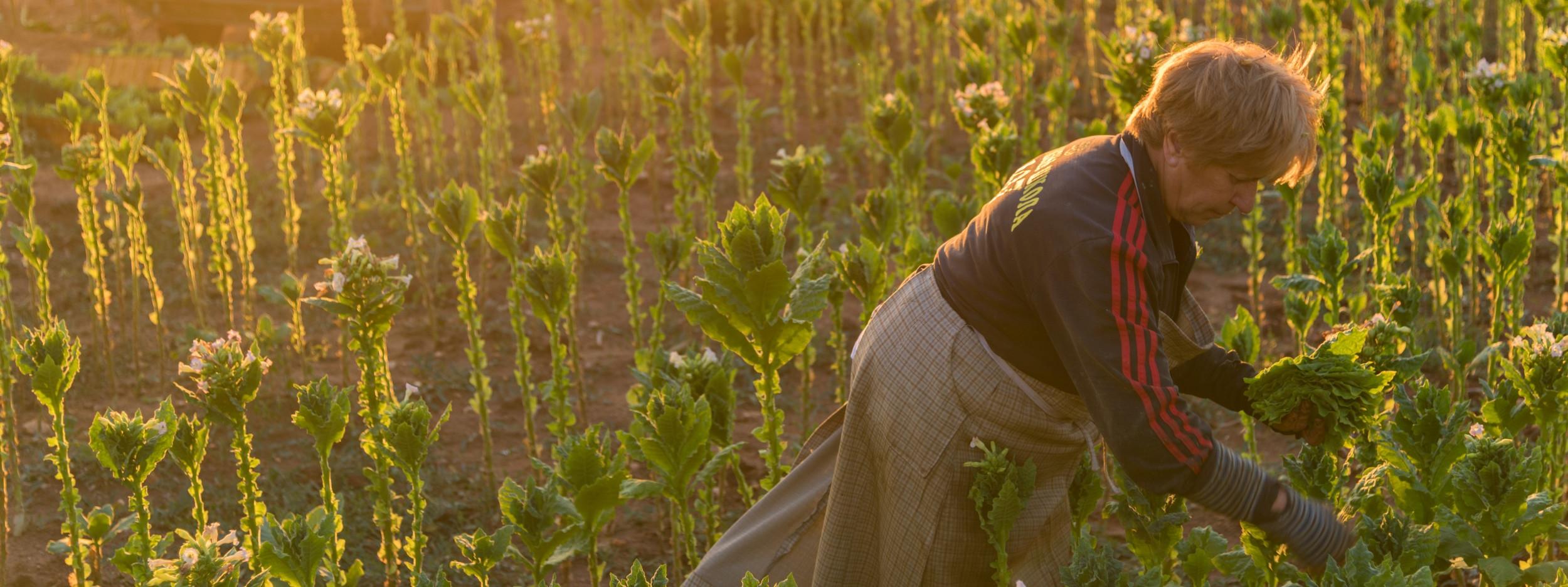Female Farmers in the Balkans on the Frontlines of the Climate Crisis

- {{"article.by"|translate}} JD Farrugia
- {{"article.posted"|translate}} 26-07-2020
Female Farmers in the Balkans on the Frontlines of the Climate Crisis
Agriculture is one of the sectors most affected by the climate crisis having negative impacts not just on our food security but also on the well-being of millions of people across the globe whose livelihood depends on it. This is particularly true in the Balkans; a region heavily reliant on farming. Women working in the industry are particularly vulnerable to challenges that lay ahead and, equipping them with the tools necessary to adapt is crucial for the sector as a whole.
Farmers, particularly small-scale producers, occupy one of the most vital roles in our communities all over the world. But as the demand for food continues to increase these producers face an increasing number of obstacles due to the numerous effects of climate change, industrial agriculture, and general decline of natural land and resources. Agriculture is one of the most climate-sensitive industries and small scale producers are some of the most vulnerable to the effects of climate breakdown.
Approximately 2.5 billion small-scale producers rely on agriculture and all related activities and manage more than 80% of the 500 million small scale farms around the world. Four-fifths of the food consumed in developing countries comes from such operations. As local knowledge and practices are passed down from generation to generation, these farmers are also curators of the land and the indigenous knowledge obtained over the centuries that has ensured stable food production in a way that ensures the conservation of natural resources.
Agriculture in the Western Balkans
The climate and natural properties of many of the Western Balkan countries are ideal for healthy agriculture industry. In fact, agriculture plays a big role in the economies of countries like North Macedonia and Serbia.
It accounts for 8.2% of Serbia’s GDP and is the main economic activity in many areas around the country. Over 40% of the country’s area is utilised agricultural land responsible for the production and export of products like maize, wheat, apples and frozen raspberries totalling to around 21% of all of Serbia’s exports. 40% of the population live in rural areas and 20% of the working population is employed in agriculture.
In North Macedonia, agriculture contributed to 7.2% of the country’s GDP in 2018 and farmland takes up 50% of the land. There are 193,000 family farms in North Macedonia which is a very high number considering the relatively small population.
Adapting to the Climate Crisis
The Western Balkans region is susceptible to natural hazards like floods, droughts, landslides and forest fires and the climate crisis is increasing their frequency and intensity. Naturally, these will have negative impacts on the agricultural sector and, in turn, the region’s food security. This is over-and-above other environmental issues such as land degradation, urbanisation and land use.
According to a new study, Serbia experienced a large number of floods between 1990-2014 which were also followed by extreme temperatures and earthquakes. The floods, caused by longer periods of rainfall, intensive snow melting and/or summer storms, hit the agriculture sector very hard. Intense rainfall between April and May 2014 resulted in the worst flooding reported in over a century and affected 24 municipalities. This cost the country approximately €1.5 billion; €228 million to the agriculture sector alone. Poor embankment maintenance, flood defences and debris in rivers and drain systems also exacerbated the situation. Serbia is also highly prone to drought and, in the summer of 2012, this cost the sector over €1.7 billion.
North Macedonia is prone to similar risks which are also being intensified because of climate breakdown. The industry will face lower production, more crop and livestock damage and more soil erosion. Drops in production have already been reported between 2008 to 2012 due to dry periods and drought. By 2050, we can expect a 21% reduction of wheat production and a 56% decrease of maize production for example. The South and Southeastern regions are particularly vulnerable to such hazardous events. As we reported in an earlier article, the number of drought days will increase depending on how much we allow the planet to warm.
Less wheat in the winter will rattle the country’s food security, decreased grape production will dent the wine industry and less alfalfa production will lower the productivity of livestock and animal products like meat and dairy.
Female farmers in the Balkans
Women’s role in food production is often overlooked even though they make up around 43% of the global agricultural workforce in developing countries. The work done by women in the sector, generally speaking, tends to be more burdensome and involves a lot of unpaid work in the household. In North Macedonia, only 5% of women living in rural areas are land-owners largely due to persisting traditions that land is handed down amongst the males in the family. This makes it difficult for women to apply for loans without any assets to their name. Female food producers have less access to information and knowledge. These factors and others, therefore, make women working in the agriculture sector more vulnerable to climate impacts.
Research with a group of female farmers in Serbia found that over half (57%) of the respondents were unpaid family workers and, for 53% of them, farming was not a main source of income. The most common types of activities they were involved in include seeding, removal of weeds, processing and storage but were much less involved in tasks like land preparation and transport. They reported drought as the main threat to their productivity and also mentioned a lack of financial support, natural hazards, low-profit margins and poor soil quality.
The need for adaptation and capacity building
Given the risks that are present and, even more so, the ones that lay ahead; it is of the utmost importance to safeguard the wellbeing and livelihood of agricultural communities in the Western Balkans, particularly the women involved in the sector who are even more vulnerable to them.
Most farmers interviewed in Serbia stressed that branching out to new practices with different agricultural products would significantly improve their resilience but this was difficult for many of them due to lack of financial support (including government subsidies and loans) as well as inadequate access to information. Most of the survey participants “indicated that they never received any information or advice from extension service on agricultural production”.
Capacity building opportunities such as training and access to information could significantly improve the livelihood and production of these farmers. Vase Mojsovska, a vineyard owner and chairperson of the National Farmers Federation in Timyanik, North Macedonia is one of the very few female farmers who has had the opportunity to own land and receive training and capacity building. Following her involvement in a climate change adaptation project in 2012, she acquired valuable knowledge on different techniques to make her vine production more climate-resilient and has been using these ever since.
In order to build the resilience of the sector to the adverse effects of the climate crisis we must consider the following:
Provide more capacity building opportunities to farmers both in terms of knowledge acquisition and access to funds
Disseminate information about good practices and technologies available to aid with disaster risk reduction
Address gender inequality and promote gender empowerment within the sector
Photo credits: Luka Esenko
-
Корисни линкови
26-01-2021 -
Справување со климатските промени и загадувањето на воздухот во градот Скопје
29-04-2018 -
Финансирање во климата
28-01-2022 -
Микронаративи
08-06-2022
{{"article.lastestPosts"|translate}}
-
Нови финансирања за унапредување на природата и биолошката разновидност на Зелената агенда за Западен Балкан
11-03-2025 -
Започна проектот за развој на 1-от и 2-от двогодишен извештај за транспарентност и 5-от национален извештај за климатски промени на С.Македонија
04-03-2025 -
Земјоделски форум за климатски промени: Се изнаоѓаат решенија за поголема климатска отпроност на заемјоделието
02-12-2024 -
Заврши COP29, центарален фокус на финасирањето за климата
02-12-2024




 Мод за знаковен јазик
Мод за знаковен јазик Говорен асистент
Говорен асистент Означи линкови
Означи линкови

 Зголеми маус
Зголеми маус